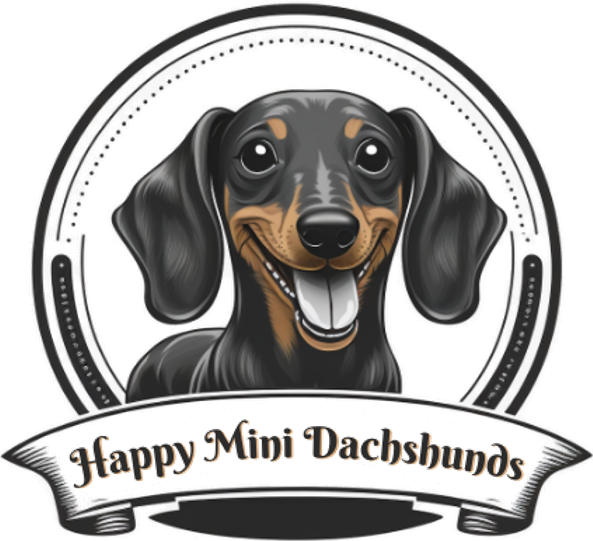Miniature Dachshunds are adorable, affectionate, and loyal pets that make wonderful additions to any family. But if you’re a pet owner or breeder of mini dachshunds, it’s essential to understand the gestation period of these little pups to ensure their health and well-being. The gestation period refers to the length of time a female dog is pregnant, and it plays a crucial role in the development of the puppies.
The gestation period of mini dachshunds can vary depending on various factors, including the size of the litter and the health of the mother. Knowing the average gestation period and the signs of pregnancy in mini dachshunds can help you prepare for the arrival of the puppies and ensure the health of the mother during the pregnancy.
In this article, we’ll explore the gestation period of mini dachshunds in detail, including the signs of pregnancy, care during pregnancy, labor and delivery, and postpartum care. We’ll also provide you with some tips on how to monitor your dog’s health during this critical period. So, let’s get started!
Key Takeaways:
- Mini Dachshunds are pregnant for an average of 63 days
- Signs of pregnancy in Mini Dachshunds include weight gain, changes in behavior, and enlarged nipples
- Proper care during pregnancy, labor, and postpartum is crucial for the health of the mother and her puppies
Understanding gestation period in mini dachshunds
Gestation period refers to the period between conception and birth of a puppy. The gestation period of mini dachshunds can vary, but on average, it is around 63 days. However, this number can vary depending on the individual dog, the size of the litter, and the health of the mother.
It is essential to understand the gestation period of your mini dachshund to ensure that they receive proper care during this critical period. During pregnancy, your mini dachshund’s body undergoes significant changes, and understanding these changes can help you ensure the health of both the mother and puppies.
Factors affecting the gestation period of mini dachshunds:
Several factors can affect the gestation period of mini dachshunds, including:
- Age: A mini dachshund’s age can affect the gestation period. Older dogs may have shorter gestation periods, while younger dogs may have longer gestation periods.
- Size of litter: The size of the litter can also affect the gestation period. Smaller litters may result in shorter gestation periods, while larger litters may require a more extended gestation period.
- Health of the mother: The mother’s health can also play a role in the gestation period. If the mother is healthy, the gestation period may be shorter. However, if the mother is not in good health, the gestation period may be longer.
- Breed: The breed of your mini dachshund can also play a role in the gestation period. Mini dachshunds, for instance, have a shorter gestation period than larger breeds like Great Danes or St. Bernards.
Monitoring the gestation period:
Monitoring the gestation period is crucial to ensure that your mini dachshund and her puppies remain healthy during the pregnancy. It is essential to keep track of your dog’s weight, diet, and overall health during this period.
Regular veterinary checkups can help you monitor your mini dachshund’s health and identify any potential issues early. Your veterinarian can also help you estimate the due date and prepare for the birth of the puppies.
Understanding the gestation period of mini dachshunds is essential for the health and well-being of both the mother and her puppies. By monitoring the gestation period and understanding the factors that can affect it, you can ensure that your mini dachshund receives the care she needs during this critical period.
Signs of pregnancy in mini dachshunds
Now that we have a basic understanding of the gestation period of mini dachshunds, let’s move on to the signs that you can look out for to determine whether your dog is pregnant.
Physical changes
One of the most noticeable signs of pregnancy in a mini dachshund is a change in their physical appearance. The abdomen of the dog will become larger, and their nipples will become more prominent and darker in color. As the pregnancy progresses, the dog may gain weight, but this can be difficult to notice in a mini dachshund due to their already small size.
Behavioral changes
Pregnancy can also cause behavioral changes in a mini dachshund. For instance, the dog may become more affectionate or more protective of their owner. They may also exhibit nesting behavior, such as gathering blankets and pillows to make a comfortable space for themselves.
Appetite changes
Pregnancy can also affect a dog’s appetite. Some mini dachshunds may lose their appetite, while others may become more voracious eaters. It’s important to keep an eye on your dog’s food intake and make sure that they are getting the nutrients they need for a healthy pregnancy.
Vomiting
Morning sickness is not just limited to human pregnancies. Mini dachshunds can also experience vomiting during the first few weeks of pregnancy. If your dog is vomiting excessively, however, it’s important to contact your vet to rule out any other potential health issues.
Being able to identify the signs of pregnancy in your mini dachshund is crucial for ensuring the health and safety of both the mother and her puppies. By keeping a close eye on your dog and seeking veterinary care when necessary, you can help to ensure a smooth and healthy pregnancy.
Care during pregnancy
When a mini dachshund is pregnant, it is essential to provide the right care to ensure that the mother and her puppies are healthy. Here are some important things to keep in mind:
- Nutrition: The mini dachshund should be given high-quality dog food that is specially formulated for pregnant dogs. It should be rich in protein, vitamins, and minerals to meet the demands of the developing puppies.
- Exercise: Mini dachshunds should continue to get regular exercise, but avoid any strenuous activities that can cause harm to the puppies.
- Prenatal Check-ups: It is crucial to take the pregnant dog to the vet for regular check-ups. The vet can monitor the dog’s health and detect any potential problems early on.
- Supplements: In consultation with the vet, it may be necessary to provide the mini dachshund with additional supplements to ensure a healthy pregnancy.
- Preparing for Birth: As the due date approaches, it is important to prepare a comfortable and quiet space for the mother to give birth. Provide a whelping box, clean bedding, and make sure that the room is warm and quiet.
- Postnatal Care: After birth, the mini dachshund will need a lot of attention and care to ensure that the puppies are healthy and thriving. It is important to monitor the mother’s health and keep the area clean to prevent infection.
It is important to remember that pregnancy can be a stressful and challenging time for the mini dachshund, and it is important to provide love and support to ensure that the dog and her puppies are healthy and happy. By providing proper care, you can ensure that the pregnancy and birth are safe and successful.
Labor and delivery
Once mini dachshunds are nearing the end of their pregnancy, it is important to prepare for labor and delivery. This can be an exciting but also nerve-wracking time for pet owners. Here are some things to keep in mind:
- Signs of Labor: As the due date approaches, mini dachshunds may exhibit signs of impending labor, such as restlessness, panting, and shivering. They may also have a decrease in appetite and may start to nest or dig in preparation for the birth.
- Stages of Labor: Labor in dogs generally occurs in three stages. The first stage involves the onset of contractions and the dilation of the cervix. The second stage is the delivery of the puppies. The third stage involves the delivery of the placenta.
- Assistance During Delivery: In general, dogs are very good at giving birth without human assistance. However, there are some things that owners can do to help. It is important to keep the mother comfortable and calm. You should also have clean towels and blankets on hand to help clean up the puppies after they are born.
- Complications: While most mini dachshunds give birth without any complications, there are some potential risks to be aware of. These include things like dystocia (difficulty giving birth), stillborn puppies, and retained placentas.
- After Delivery: After the puppies are born, it is important to keep them warm and to monitor them closely for any signs of distress. The mother will likely want to nurse the puppies right away, which is important for their health and development.
While labor and delivery can be stressful for pet owners, mini dachshunds are generally very good at giving birth on their own. It is important to be prepared and to know what to expect, but with the right care and attention, everything should go smoothly.
Postpartum care
After giving birth, a mini dachshund needs proper postpartum care to recover and ensure the health of her puppies. Here are some essential things to consider during the postpartum period:
- Provide a Quiet and Warm Environment: During the first few weeks, the puppies are not yet able to regulate their body temperature. It is crucial to provide a warm environment for them to avoid hypothermia. Additionally, the mother needs a quiet and safe space where she can rest and nurse her puppies without disturbance.
- Monitor the Mother’s Health: It is essential to monitor the mother’s health closely after giving birth. Check for any signs of postpartum complications such as fever, loss of appetite, and lethargy. Consult a veterinarian immediately if you notice any concerning signs.
- Provide Proper Nutrition: The mother will need proper nutrition to recover after giving birth and to produce milk for her puppies. Feed her with high-quality, protein-rich food, and provide plenty of water. Consult your veterinarian for proper feeding guidelines.
- Wean the Puppies Gradually: Puppies will start to wean around 3 to 4 weeks of age. Introduce solid food gradually, and reduce the nursing time until the puppies can eat on their own.
- Schedule Vaccinations and Check-ups: The puppies need to receive their vaccinations to protect them from diseases. Schedule regular check-ups with a veterinarian to ensure their health and growth.
Caring for a mini dachshund during and after pregnancy requires attention to detail and careful planning. With proper care and attention, your mini dachshund and her puppies can have a healthy and happy start in life. Don’t hesitate to consult a veterinarian for any concerns or questions you may have.
Conclusion
In conclusion, breeding Mini Dachshunds can be a rewarding experience, but it requires careful planning, preparation, and attention to detail. It’s essential to understand the gestation period, signs of pregnancy, care during pregnancy, labor and delivery, and postpartum care. By providing the right nutrition, regular veterinary checkups, and plenty of attention and affection, you can ensure a healthy and happy pregnancy for your Mini Dachshund.
If you are considering breeding Mini Dachshunds, it’s important to do your research and consult with experts in the field to ensure the best possible outcome for both the mother and puppies. With the right approach and support, breeding Mini Dachshunds can be a joyful and fulfilling experience that brings new life into the world and strengthens the bond between you and your furry family members.
Remember to prioritize the health and well-being of your Mini Dachshund at all times, and enjoy the journey of bringing new life into the world.

